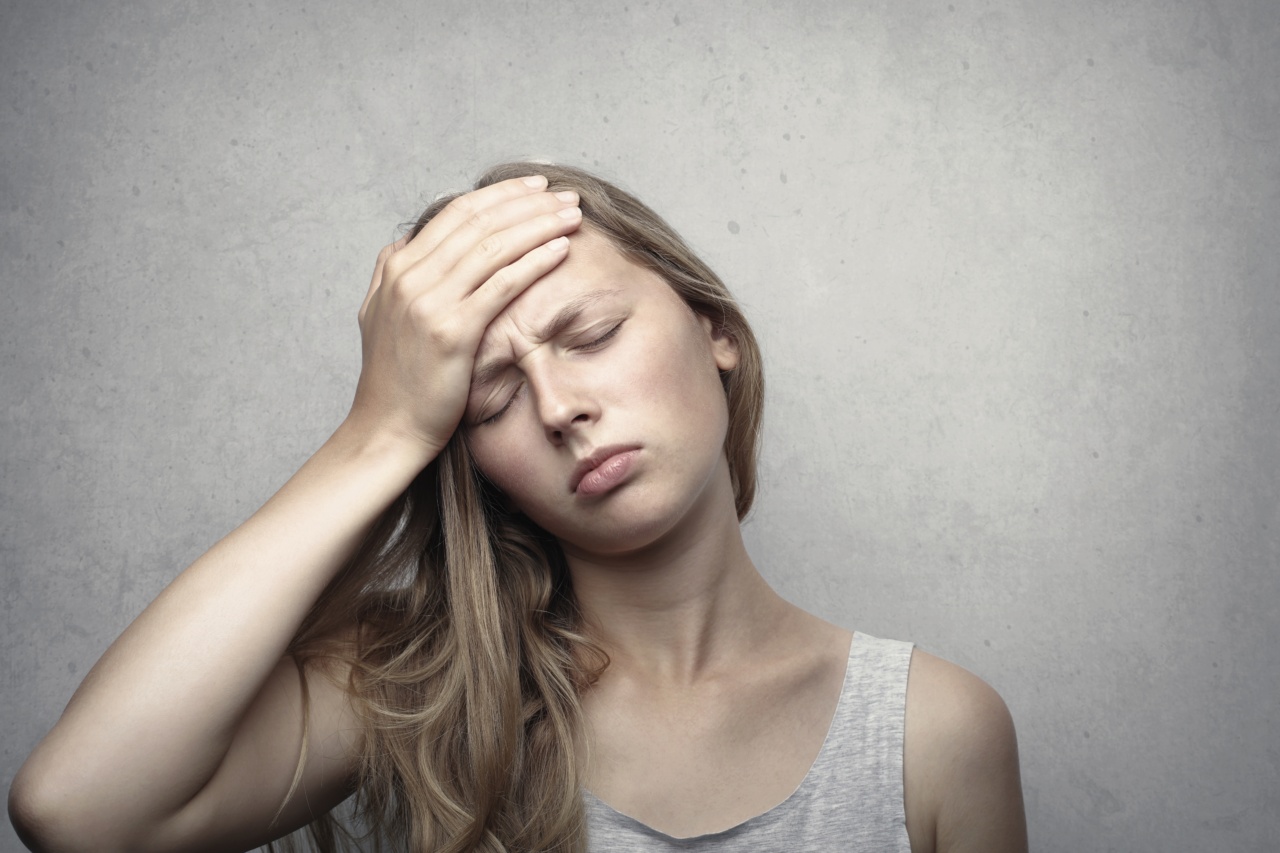Feeling exhausted can be frustrating and affect your daily routine. If you’re frequently feeling tired all through the day, you’re not alone. It’s common in most individuals and could be caused by a range of factors.
Here are the top reasons why you might be feeling tired all day long:.
1. Poor Sleep Quality
If you’re not getting enough quality sleep at night, you might feel groggy and tired the following day.
Many factors can affect sleep quality, such as late-night bedroom temperature, interruptions, and the use of technology right before bed, among others. It’s essential to create a sleep-friendly environment, switch off all electronic devices an hour before bedtime, and establish a sleep routine.
2. Dehydration
The lack of adequate water levels in your body can lead to dehydration, making you feel lethargic and decreasing your productivity levels. Be sure to drink plenty of fluids throughout the day, especially water.
Avoid sugary sodas and caffeine since they decrease hydration levels in your body. Apart from water, you can also consume fresh fruits and veggies that are rich in water like cucumber, watermelon, and strawberries.
3. Nutritional Deficiencies
A balanced diet provides essential nutrients required for optimal body functioning and overall health. Eating unhealthy foods or ignoring nutrition leads to nutritional deficiencies, which can cause fatigue and tiredness.
For instance, iron deficiency anemia or a lack of vitamin B12 in your system can cause you to feel exhausted most of the time. Consider consuming foods rich in essential nutrients, such as vegetables, fruits, lean proteins, and whole grains.
4. Stress
The stress hormone cortisol is essential for helping you deal with everyday stressors. However, when cortisol levels spike, your body’s ability to regulate it reduces, leading to adrenal fatigue.
Adrenal fatigue is a condition that causes continuous exhaustion, difficulty sleeping, and a weakened immune system. Practice stress management techniques to reduce cortisol levels in your body, including meditation, regular exercise, spending time with loved ones, and indulging in your hobbies.
5. Poor Physical Fitness
A sedentary lifestyle can cause reduced energy levels and make you feel tired even when doing the simplest of tasks. A lack of physical movement makes your body adapt to a slower pace, and it becomes difficult to engage in any physical activity.
Regular exercise, even a brisk walk, can increase your energy levels, improve your overall fitness, and help you feel less tired during the day.
6. Health Conditions
Various health conditions trigger decreased energy and lethargy in individuals. Some health conditions that cause fatigue include thyroid issues, chronic fatigue syndrome, anemia, and sleep apnea, among others.
Get in touch with your doctor if you suspect that your fatigue is caused by underlying health conditions.
7. Medications
Some medications can cause drowsiness, fatigue, and decreased energy levels, especially if you’re getting started on a new medication.
If your drowsiness is new and coincides with taking medication, check with your doctor to find out if the medication is causing the problem. In some instances, changing the dose or timing of medication helps alleviate the effects of drowsiness and fatigue.
8. Sleep Apnea
Sleep apnea is a common condition that many individuals suffer from unknowingly. This condition causes disrupted sleep and decreased oxygen levels in the body, leading to tiredness in the daytime.
If you snore loudly at night and wake up feeling tired every morning, it could be a sign of sleep apnea. Consult a doctor to get the necessary tests and treatment options.
9. Excessive Caffeine Intake
Though caffeine helps to keep you alert, the effects of caffeine eventually wear off, leaving you feeling tired and sluggish.
If you overload your system with caffeine, it can inhibit you from experiencing deep sleep, making you feel tired during the day. Consider limiting your caffeine intake, especially in the afternoon and evening hours, since it can affect your sleep patterns.
10. Not taking enough breaks during the day
Working continuously can lead to burnout and exhaustion, making you feel tired all day long. Taking breaks during the day, away from work, can increase productivity, mental clarity and improve your mindset.
Encourage short breaks, and take a walk or indulge in your favorite hobby to recharge.
Final Thoughts
Feeling exhausted and tired can be caused by various factors, with poor sleep quality and dehydration being the most common. Be sure to take enough breaks during the day, limit caffeine intake, and consume healthy foods to deal with fatigue.
If your fatigue persists, despite adopting various lifestyle changes, see a doctor to rule out underlying health conditions.































